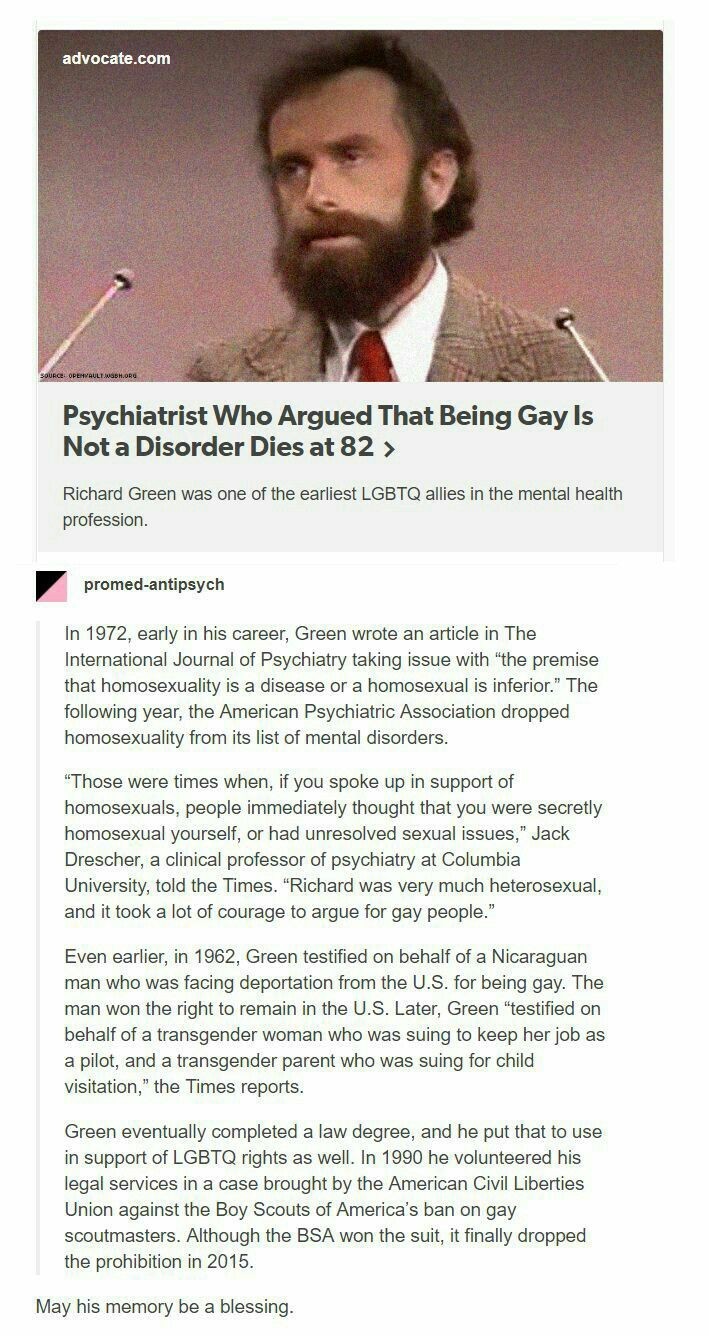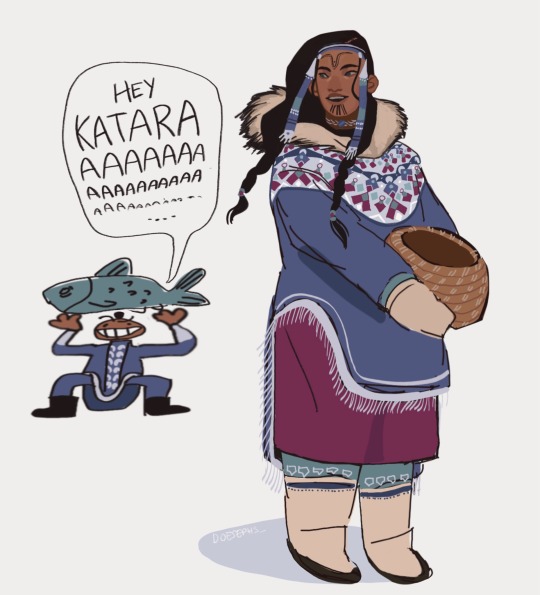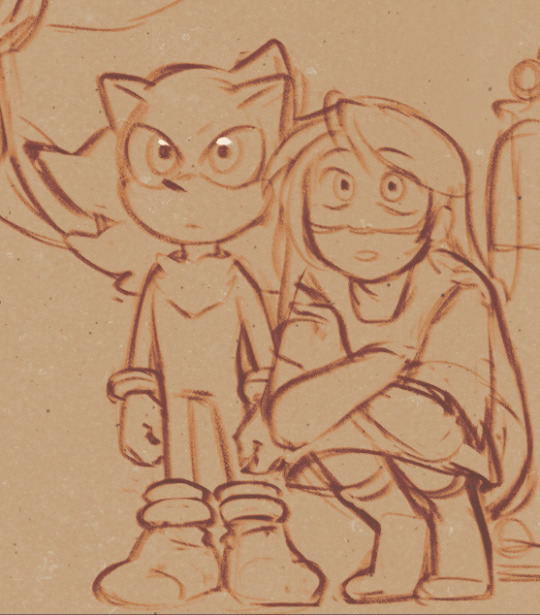#culture rights
Explore tagged Tumblr posts
Text
A football referee expels a coach for speaking in Catalan
Sadly this doesn't make it to most news because it's not uncommon, but I will translate this to give an idea to foreigners of the situations we have to deal with.
Yet again, another Catalan speaker has been kicked out of somewhere just because they spoke in Catalan in a Catalan-speaking country. This time, it happened in a local football camp in Petra (town in Mallorca, Balearic Islands).
While reading this story, remember that Catalan is the native language of Mallorca, and is legally recognised as a co-official language.
During a local-level football match, the football coach of the team UE Petra protested to the referee that a decision wasn't right. The referee told him "we are in Spain, Mallorca is part of Spain, not Spain part of Mallorca, and you must speak to me in Spanish". The coach continued speaking Catalan, since it's the language of the place where this is happening, and the referee proceeded to expel him. This is what the referee wrote in the match's minutes:
In the half-time, the coach [...] after perceiving my communication in Spanish and being reprimanded for addressing me with the words "this is shameful", starts speaking to me in Catalan. When I ask him to talk to me in Spanish, he continues perpetuating his dialect, where I understood some lacks of respect. Since I could not make him stop, I decide to expel him.
At the end of the minutes card, the referee wrote the reason for expelling him as "for disobeying my orders".
The other witnesses in the football match explain that the referee was very rude to the coach and never asked him politely to change to Spanish, only rudely saying "in Spanish!". Later, the referee also wrote that the coach was "perpetuating his dialect", as we have seen. Using the word "dialect" for a language that has suffered persecution, illegalization and discrimination is an extremely loaded term based on bigotry, only used by the hardcore Catalanophobes who defend that Catalan (and other discriminated languages like Basque and Galician) aren't languages because they're not important or respect-worthy enough to be a language, only a "dialect" (understood as a derogatory word).
The football club UE Petra has complained that this referee is partial and "has taken decisions, as can be seen by the wording used in the minutes, influenced on a coach using his mother tongue in the place where it has been official for centuries".
Now, a few days after the game and the UE Petra publishing a statement explaining it on their social media (you can read it here), the referee has pressed charges, claiming that she has been "threatened" when it was posted on social media. 🤦
Can you imagine if this happened to a Spanish person for speaking Spanish in Madrid? Or French in Paris, or English in London? Can you imagine if doctors threw them out for speaking Spanish in Madrid, French in Paris or English in London? Or hotels, banks, petrol stations did? If policemen identified them because speaking it was seen as lack of respect? Then why do we have to accept that it's normal when it happens to us?
You can find the statement published by this coach's football team UE Petra here (in Catalan). Some sources from newspapers who reported on it: Esport3, Ara Balears, Vilaweb.
#actualitat#català#llengua catalana#mallorca#illes balears#petra#languages#langblr#polyglot#catalan#discrimination#language rights#cultural rights#culture rights#catalanophobia#catalanofòbia#coses de la terra#spain
128 notes
·
View notes
Text

filipina miku!! my mom helped me with her outfit ^_^
#THIS TOOK ME FOREVER RAAHHHH#i had help from my mom with stuff like the parts of the traje de mestiza which is the outfit shes wearing#this trend looks so much fun and i wanted to join in.. im first gen canadian though so ive never been to the philippines and only#know thru stories of my parents growing up. im proud of my heritage but there are some things i didnt grow up with that#make me feel disconnected from my culture. so it was nice to talk to my mom abt it and ask for her help with this :3#the pleated tapis is meant to resemble her skirt.. i had no way of adding her stockings but i noticed the piano key design#so i used that for the saya. the bandana is meant to resemble her hairties and shes wearing bakya wooden slippers with embroidery#i kinda wanted to add the panuelo to resemble her tie as a finishing touch but i forgor ;w; just imagine it i guess#my mom really likes this. shes a little confused abt the blue hair and i had to explain her hair is like that but she thinks shes pretty#originally i wanted her holding the woven pamaypay and fanning herself because ITS HOT ITS 25 FUCKING DEGREES TODAY#but i couldnt get the pose right so i settled for this. i wanna draw her and brazilian miku high fiving ill do that tmrw#my art#myart#hatsune miku#miku worldwide#philippines#vocaloid#miku
64K notes
·
View notes
Text
The world exists in such a baffling state of simultaneous sex-aversion and sex-hegemony. Every social platform on the internet is trying to banish sex workers to the shadow realm but I can't post a tweet without at least two bots replying P U S S Y I N B I O. People are self-censoring sex to seggs and $3× but every other ad you see is still filled with half-naked women. Rightwingers want queer people arrested for so much as existing in the same postal code as a child and are also drumming up a moral panic about how teenage boys aren't getting laid enough. I feel like I'm losing my mind.
#it's bad if you want i have sex it's also bad if you DON'T want to have sex#god forbid if you're a woman in a heterosexual marriage and aren't in the mood#that's 'withholding sex' and you're clearly abusive scum who should be divorced and left without any of your shared assets.#but if you DO have sex now you're a degenerate freak plotting for the downfall of western society#i don't know what to say i'm just so tired#politics#culture#queerphobia#lgbtqia#misogyny#<it's not the exclusive source but let's be honest sooo much of this is integral to the patriarchy#patriarchy needs access to an underclass they can treat like sex objects but they also don't want them to have any human rights#so sexuality is both obligatory and stigmatized#purity culture#i'm really struggling with tagging this because most of the appropiate tags would- in a beautiful twist of irony- get me booted off tumblr
45K notes
·
View notes
Text
GET KOSA TRENDING.
STOP SCROLLING NOW!
AS OF FEBRUARY 21ST, 2024, WE GOT FIVE DAYS UNTIL THE DAY OF DECISION OF THE KOSA BILL, WHICH WILL CAUSE MASS CENSORSHIP ROUND THE INTERNET IF PASSED. WE NEED EVERYONE TO KNOW ABOUT THIS AND CONTRIBUTE. I'M NOT GIVING UP ON YOU ALL.
(IMPORTANT UPDATE: Kosa will not necessarily pass on the 26th. It only has the support to pass in Senate, and we STILL HAVE TIME. That being said, time is of the essence.)
WE'RE DOWN TO THE WIRE BUT WE CAN'T GIVE UP YET. IF WE GIVE UP, EVERYTHING IS OVER. IF WE DON'T, AT LEAST WE HAVE A CHANCE.
I'M THE ONE WHO SOUNDED THE ALARM, AND I'M NOT GOING TO CURL UP AND DIE YET.
Reblog this post in every LEGAL way you can under the Tumblr guidelines with the appropriate tags. TELL AND TAG EVERYONE YOU KNOW, then add the tags to see below... and more if you can think of any complying.
Visit badinternetbills.com if you want to find a way to defeat KOSA. It WILL NOT take much of your time. Reblog with any other information or sources, too-- but make sure to reblog if you can.
Reblog if you support lgbtq+ content.
Reblog if you support questioning queer youth and/or abused youth getting the information they need.
Reblog if you support Ao3 and/or other sites that wholeheartedly preserve talentedly made media.
Reblog if you're going to repost this on other sites than Tumblr and spread the word across Twitter, Tik Tok, Pinterest, or elsewhere, alongside the link to badinternetbills.com.
Reblog if you think KOSA is unfair and shouldn't be anyone's problem -- including the adults ALL OVER THE DAMN EARTH forced to face the mass censorship it causes because "think of the American Children!".
Reblog if you support internet activism and Palestine.
Reblog if you hate fascism or censorship, and don't want actually serious and helpful conversations censored on the internet.
Reblog if you value the internet in any way at all whatsoever.
CHECK THIS PETITION, TOO! https://www.change.org/p/stop-the-kosa?recruiter=1331807538&utm_source=share_petition&utm_medium=sms&utm_campaign=psf_combo_share_initial&utm_term=psf&recruited_by_id=57368c40-d0fd-11ee-98f7-2175430f819f&share_bandit_exp=initial-36809664-en-US
(Also, please reblog with at least "stop kosa" as a tag and not "kosa". I made the mistake of not adding just "kosa" as a tag...)
We won't let this stand any longer. Let's start a riot and get this trending.
(Update: this is outdated, but we should still talk about it. Get Kosa trending.)
#meme#memes#kosa bill#Stop kosa#bad internet bills#stop censorship#anti censorship#internet censorship#internet freedom#internet culture#Internet#signal boost#media preservation#social media#social justice#archive of our own#Ao3#stop kids online safety act#very important post#important#anti conservative#antifascist#Fanfic#Fanfiction#Headcanons#LGBT#lgbtq#lgbtqia#lgbtq rights#lgbtq community
55K notes
·
View notes
Text
HETEROSEXUAL CIS-PEOPLE LOOK HERE

Snaps my fingers at you as you scroll past this post
Look at me. Listen.
I'm not the best at serious posts, but that article up there reminded me of how important it is that people like you stand up for us. So hold on while I try to get this out of my mushy end-of-work-day brain.
We could fight this fight ourselves for decades trying to reach the equal laws, gender affirming trans healthcare that doesn't have a 2-5+ soul-eating years of waiting time, medical care with equal knowledge of lgbtqia+ bodies, and, what is often forgotten, inclusion in the little everyday areas of life like our way of speaking or things being set up or designed with the existence of queer people in mind.
But you joining in could get us there so much faster.
The power you have as a hetero cis person is that you set the standard for what is seen as the average way of treating us among other hetero cis people. You have been given the power of deciding what's "normal" and I'm begging you to use it.
Richard Green is a great example of to what extent your actions can help our situation, and smaller ways of support still add up to a great impact on society, and could make the days of the queer people you interact with.
Educate yourself before you speak up, but don't be silent.
#lgbtqia+#lgbtq#lgbtqia#lgbtq+#lgbtqia+ rights#lgbtq+ rights#lgbtq rights#interesting#article#psychology#mental health#psychologist#reading#culture#cooking#drawing#music#nature#science#baking#pets#inspirational#gaming#photography#fashion#writing
14K notes
·
View notes
Text
i wanna say fuck you to anyone who shame disabled, chronically ill & neurodivergent people, especially homebound folks, for "spending too much time on their phone/on the internet/etc." when it's the only (Somewhat) accessible way for them to experience the world. many people don't get to get out much even if they want to because of their disabilities. shaming someone for trying to connect with the world, make friends and engage with hobbies in ways that are accessible to them is beyond cruel and unnecessary
#cripple punk#cripplepunk#crip punk#cpunk#actually disabled#chronic pain#disability culture#fibromyalgia#disability rights#disability advocacy#physical disability#c punk#angry cripple#queer cripple#cfsme#chronic fatigue syndrome#chronic fatigue#arthritis#diabetes#neurodiverse#neurodiversity#neurodivergent#autism#autistic#adhd#actually autistic#hypermobile eds#hypermobilty syndrome#our writing
17K notes
·
View notes
Text





everyone out of the way, this is the only thing I'm going to be thinking about from now on.
(okay, there is one more thing)

#art#twisted wonderland#twisted wonderland spoilers#lost in the book with nightmare before christmas#hajimari no halloween#jade is having the time of his life being a nasty little mofo and i love him for it#and gosh...leona and sally being friends is SO cute#sometimes i forget that leona is canonically a feminist#sally poisons a man and he's like 'you go girl'#they have so much in common though!#they both have eye scars and no ears on the sides of their heads!#no but they're adorable and i love it#and i suppose i have to reluctantly admit that i understand why lilia could not be in this event#he would just be stuffing frogs into his mouth left and right without even blinking#every time we get a moment of culture-clash he would just be there like 'mm-hm. yes. i do not see the problem.'#man. i do so adore any event that forces the boys to Work Together#their one weakness...not being petty dipshits who get into slapfights at the drop of a hat#absolutely nothing got done that first day and the mayor set off the emergency alarm because he was so done with them#this is perfection#anyway brb gotta go do some missions for the other jack's birthday#see you next week for more of scully becoming increasingly disillusioned with all these fake halloween fans
4K notes
·
View notes
Text
So much of what society treats as a joke is just mocking disability. Their idea of lazy is a disabled person trying to survive, whether that be living with their parents as an adult or using pre prepared food. Cringe culture is based entirely around mocking neurodivergent people and their interests. Symptoms and characteristics of disability such as urgency issues, drooling, tremors, tics, strabismus and speech impediments are used as cheap punchlines.
In children’s tv shows disabled characters such as those with speech impediments are treated as a joke, with symptoms of disability being portrayed as synonymous to stupid.
This idea is being taught from a young age in the media and it’s engrained into our language and culture. This goes beyond jokes, it contributes to the alienation of people with disabilities.
Once you start noticing these things you realise how constant and normalised it is.
Reducing an entire person to a punchline is wrong. Using a disability symptom as an insult is wrong. It’s disturbing how normalised it is to not treat people with basic decency and respect.
#disabled#disability#morbid midnight#cpunk#physical disability#neurodivergence#cringe culture is dead#cringe culture is ableist#ableism#disabled advocacy#disabled rights#cripple#angry cripple#cripple posting#crippled#cripple punk#tw ableism#ableist#disabled activism
4K notes
·
View notes
Text

something something "wearing a microfiber cloth in my back pocket to let the best buy employees know I'm cruising" idr how the post goes
#lab creations#gravity falls#fiddleford mcgucket#whenever I'm artblocked I just do another fiddleford pic he's like my muse or something#might be unclear but that's light pink + gray + navy blue on the left and red/black stripe on the right#which could mean nothing#(I personally don't think he would have the time to get into cruising culture. fyi. another example of 'images I just make for fun')
4K notes
·
View notes
Text
As I keep shouting into the void, pathologizers love shifting discussion about material conditions into discussion about emotional states.
I rant approximately once a week about how the brain maturity myth transmuted “Young adults are too poor to move out of their parents’ homes or have children of their own” into “Young adults are too emotionally and neurologically immature to move out of their parents’ homes or have children of their own.”
I’ve also talked about the misuse of “enabling” and “trauma” and “dopamine” .
And this is a pattern – people coin terms and concepts to describe material problems, and pathologization culture shifts them to be about problems in the brain or psyche of the person experiencing them. Now we’re talking about neurochemicals, frontal lobes, and self-esteem instead of talking about wages, wealth distribution, and civil rights. Now we can say that poor, oppressed, and exploited people are suffering from a neurological/emotional defect that makes them not know what’s best for themselves, so they don’t need or deserve rights or money.
Here are some terms that have been so horribly misused by mental health culture that we’ve almost entirely forgotten that they were originally materialist critiques.
Codependency What it originally referred to: A non-addicted person being overly “helpful” to an addicted partner or relative, often out of financial desperation. For example: Making sure your alcoholic husband gets to work in the morning (even though he’s an adult who should be responsible for himself) because if he loses his job, you’ll lose your home. https://www.nytimes.com/2022/07/08/opinion/codependency-addiction-recovery.html What it’s been distorted into: Being “clingy,” being “too emotionally needy,” wanting things like affection and quality time from a partner. A way of pathologizing people, especially young women, for wanting things like love and commitment in a romantic relationship.
Compulsory Heterosexuality What it originally referred to: In the 1980 in essay "Compulsory Heterosexuality and Lesbian Existence," https://www.journals.uchicago.edu/doi/abs/10.1086/493756 Adrienne Rich described compulsory heterosexuality as a set of social conditions that coerce women into heterosexual relationships and prioritize those relationships over relationships between women (both romantic and platonic). She also defines “lesbian” much more broadly than current discourse does, encompassing a wide variety of romantic and platonic relationships between women. While she does suggest that women who identify as heterosexual might be doing so out of unquestioned social norms, this is not the primary point she’s making. What it’s been distorted into: The patronizing, biphobic idea that lesbians somehow falsely believe themselves to be attracted to men. Part of the overall “Women don’t really know what they want or what’s good for them” theme of contemporary discourse.
Emotional Labor What it originally referred to: The implicit or explicit requirement that workers (especially women workers, especially workers in female-dominated “pink collar” jobs, especially tipped workers) perform emotional intimacy with customers, coworkers, and bosses above and beyond the actual job being done. Having to smile, be “friendly,” flirt, give the impression of genuine caring, politely accept harassment, etc. https://weld.la.psu.edu/what-is-emotional-labor/ What it’s been distorted into: Everything under the sun. Everything from housework (which we already had a term for), to tolerating the existence of disabled people, to just caring about friends the way friends do. The original intent of the concept was “It’s unreasonable to expect your waitress to care about your problems, because she’s not really your friend,” not “It’s unreasonable to expect your actual friends to care about your problems unless you pay them, because that’s emotional labor,” and certainly not “Disabled people shouldn’t be allowed to be visibly disabled in public, because witnessing a disabled person is emotional labor.” Anything that causes a person emotional distress, even if that emotional distress is rooted in the distress-haver’s bigotry (Many nominally progressive people who would rightfully reject the bigoted logic of “Seeing gay or interracial couples upsets me, which is emotional labor, so they shouldn’t be allowed to exist in public” fully accept the bigoted logic of “Seeing disabled or poor people upsets me, which is emotional labor, so they shouldn’t be allowed to exist in public”).
Battered Wife Syndrome What it originally referred to: The all-encompassing trauma and fear of escalating violence experienced by people suffering ongoing domestic abuse, sometimes resulting in the abuse victim using necessary violence in self-defense. Because domestic abuse often escalates, often to murder, this fear is entirely rational and justified. This is the reasonable, justified belief that someone who beats you, stalks you, and threatens to kill you may actually kill you.
What it’s been distorted into: Like so many of these other items, the idea that women (in this case, women who are victims of domestic violence) don’t know what’s best for themselves. I debated including this one, because “syndrome” was a wrongful framing from the beginning – a justified and rational fear of escalating violence in a situation in which escalating violence is occurring is not a “syndrome.” But the original meaning at least partially acknowledged the material conditions of escalating violence.
I’m not saying the original meanings of these terms are ones I necessarily agree with – as a cognitive liberty absolutist, I’m unsurprisingly not that enamored of either second-wave feminism or 1970s addiction discourse. And as much as I dislike what “emotional labor” has become, I accept that “Women are unfairly expected to care about other people’s feelings more than men are” is a true statement.
What I am saying is that all of these terms originally, at least partly, took material conditions into account in their usage. Subsequent usage has entirely stripped the materialist critique and fully replaced it with emotional pathologization, specifically of women. Acknowledgement that women have their choices constrained by poverty, violence, and oppression has been replaced with the idea that women don’t know what’s best for themselves and need to be coercively “helped” for their own good. Acknowledgement that working-class women experience a gender-and-class-specific form of economic exploitation has been rebranded as yet another variation of “Disabled people are burdensome for wanting to exist.”
Over and over, materialist critiques are reframed as emotional or cognitive defects of marginalized people. The next time you hear a superficially sympathetic (but actually pathologizing) argument for “Marginalized people make bad choices because…” consider stopping and asking: “Wait, who are we to assume that this person’s choices are ‘bad’? And if they are, is there something about their material conditions that constrains their options or makes the ‘bad’ choice the best available option?”
#mad pride#neurodiversity#ableism#ageism#youth rights#liberation#disability rights#classism#capitalism#mental health culture#pop psychology#feminism#emotional labor
7K notes
·
View notes
Text

it’s always ‘inuit inspired’, girl just admit you can’t be bothered to open google
#but cmon it’s literally right there#stop making cultural accuracy under the assumption of pan-asianism#sokka#avatar the last airbender#atla fanart#digital art#digital painting#katara#katara art#sokka art#inuit art#inuk katara#kakiniit
6K notes
·
View notes
Text







so i recently watched all the sonic movies
#sonic the hedgehog#sonic movie 3#shadow the hedgehog#knuckles the echidna#miles tails prower#maria robotnik#its here that i admit that if not for cringe culture i could have been a sonic kid growing up#i had sonic heros and sonic 06 on the gamecube when i was a wee lad and sonic was my first fictional baby crush that i remember#its always held that little special place in my heart and ive admired the worked from afar for a long time#but i think now im getting invested enough in the franchise that i might actually look into it more#the movies gave me that push i think i wanted honestly#and now i can show my inner child the funny little drawings i can now do of hedgehogs kissing#YEAH THATS RIGHT. YOU HEARD ME. STAY TUNED FOR THAT SHIT#moon art
2K notes
·
View notes
Text
paramount and spyglass are trying so hard right now to save face because jenna ortega rightfully left the scream franchise after they fired melissa for supprting palestine. nobody is dumb enough to believe the excuse that it’s a scheduling conflict hours after rumors she was trying to get out of her contract cause she was pissed. i’m very thankful that jenna is risking her career and using her position to do the right thing. she’s been outspoken about palestine for years now. i hope this begins a trend of zionist losing money for their support and complacency with an active genocide
#free palestine#scream#jenna ortega#melissa barrera#i won’t be surprise if other cast members leave the project#many have been outspoken for years but few have the cultural capital jenna has#i love this cast and this franchise but the right thing to do is boycott future scream content unless it changes hands to people who#wont support war crimes#it takes remarkably little of me to give up a media i love while actual people are dying daily#the carpenter sisters make me so proud 💗#melissa has since been posting nonstop about palestine and i’m just endlessly proud of her#💗💗💗
12K notes
·
View notes
Text
chronic fatigue weaves its way into everything. people love to tell disabled people they'd love to rest as much as we do, but they fail to understand how tired we are while we rest. we are not relaxed, we are generally pretty miserable, either from pain, irritability, or fatigue- which bleeds into every aspect of your life. being too fatigued to get up off of the couch means that you're too fatigued to get to the cupboard to pull out pans to attempt to start cooking.
the steps hidden within steps that are required to do a lot of tasks related to being a "functioning adult" are daunting, there are often way too many steps necessary to make "Simple" foods or do "simple" chores for disabled people to accomplish these tasks. chronic fatigue often means that even waking up from a nap or night's rest requires time to adjust to and power through
waking up is a process for me. im often no more alert and awake hours after i've woken than I am right after doing so. caffeine does not help fatigue- at least not at safe doses, for me, anyways. many days the act of moving from my bedroom to my living room is too much. taking dishes to the sink can be too exhausting. i have began falling asleep in front of the kitchen counter while standing because i realize the amount of steps required to clean the counters, or do the dishes, or prepare a meal that all of my energy instantly bleeds away
it's okay if you feel this way too. i have been dealing with chronic fatigue my entire life and it cost me my best paying job. i lost my ability to work because of it. it's not just you being "sleepy", you are genuinely too exhausted to function. you do NOT have the energy levels other people do, and that's okay. it's okay to let yourself be tired sometimes and address that instead of trying to pretend you're not tired.
i wish you good luck. you are loved
#chronic fatigue#fatigue#cfs#cfsme#cfs/me#myalgic encephalomyelitis#chronic fatigue syndrome#actually disabled#chronic pain#disability culture#cripple punk#fibromyalgia#crip punk#cripplepunk#cpunk#disability rights#disability advocacy#chronic illness#chronically ill#depession#adhd#autism#neurodivergence#neurodiverse#neurodivergent#schizophrenia#arthritis#cancer#diabetes#diabetic
7K notes
·
View notes
Text
A mountain in New Zealand considered an ancestor by Indigenous people was recognized as a legal person on Thursday [January 30, 2025] after a new law granted it all the rights and responsibilities of a human being.
Mount Taranaki — now known as Taranaki Maunga, its Māori name — is the latest natural feature to be granted personhood in New Zealand, which has ruled that a river and a stretch of sacred land are people before. The pristine, snow-capped dormant volcano is the second highest on New Zealand's North Island at 2,518 meters (8,261 feet) and a popular spot for tourism, hiking and snow sports.
The legal recognition acknowledges the mountain's theft from the Māori of the Taranaki region after New Zealand was colonized. It fulfills an agreement of redress from the country's government to Indigenous people for harms perpetrated against the land since.
How can a mountain be a person?
The law passed Thursday gives Taranaki Maunga all the rights, powers, duties, responsibilities and liabilities of a person. Its legal personality has a name: Te Kāhui Tupua, which the law views as "a living and indivisible whole." It includes Taranaki and its surrounding peaks and land, "incorporating all their physical and metaphysical elements."
A newly created entity will be "the face and voice" of the mountain, the law says, with four members from local Māori iwi, or tribes, and four members appointed by the country's Conservation Minister.

Why is this mountain special?
"The mountain has long been an honored ancestor, a source of physical, cultural and spiritual sustenance and a final resting place," Paul Goldsmith, the lawmaker responsible for the settlements between the government and Māori tribes, told Parliament in a speech on Thursday.
But colonizers of New Zealand in the 18th and 19th centuries took first the name of Taranaki and then the mountain itself. In 1770, the British explorer Captain James Cook spotted the peak from his ship and named it Mount Egmont.
In 1840, Māori tribes and representatives of the British crown signed the Treaty of Waitangi — New Zealand's founding document — in which the Crown promised Māori would retain rights to their land and resources. But the Māori and English versions of the treaty differed — and Crown breaches of both began immediately.
In 1865, a vast swathe of Taranaki land, including the mountain, was confiscated to punish Māori for rebeling against the Crown. Over the next century hunting and sports groups had a say in the mountain's management — but Māori did not.
"Traditional Māori practices associated with the mountain were banned while tourism was promoted," Goldsmith said. But a Māori protest movement of the 1970s and '80s has led to a surge of recognition for the Māori language, culture and rights in New Zealand law.
Redress has included billions of dollars in Treaty of Waitangi settlements — such as the agreement with the eight tribes of Taranaki, signed in 2023.
How will the mountain use its rights?
"Today, Taranaki, our maunga, our maunga tupuna, is released from the shackles, the shackles of injustice, of ignorance, of hate," said Debbie Ngarewa-Packer, a co-leader of the political party Te Pāti Māori and a descendant of the Taranaki tribes, using a phrase that means ancestral mountain.
"We grew up knowing there was nothing anyone could do to make us any less connected," she added.
The mountain's legal rights are intended to uphold its health and wellbeing. They will be employed to stop forced sales, restore its traditional uses and allow conservation work to protect the native wildlife that flourishes there. Public access will remain.
Do other parts of New Zealand have personhood?
New Zealand was the first country in the world to recognize natural features as people when a law passed in 2014 granted personhood to Te Urewera, a vast native forest on the North Island. Government ownership ceased and the tribe Tūhoe became its guardian.
"Te Urewera is ancient and enduring, a fortress of nature, alive with history; its scenery is abundant with mystery, adventure, and remote beauty," the law begins, before describing its spiritual significance to Māori. In 2017, New Zealand recognized the Whanganui River as human, as part of a settlement with its local iwi.
How much support did the law receive?
The bill recognizing the mountain's personhood was affirmed unanimously by Parliament's 123 lawmakers. The vote was greeted by a ringing waiata — a Māori song — from the public gallery, packed with dozens who had traveled to the capital, Wellington, from Taranaki.
The unity provided brief respite in a tense period for race relations in New Zealand. In November, tens of thousands of people marched to Parliament to protest a law that would reshape the Treaty of Waitangi by setting rigid legal definitions for each clause. Detractors say the law — which is not expected to pass — would strip Māori of legal rights and dramatically reverse progress from the past five decades.
-via NPR, January 31, 2025
--
Note: The article doesn't get fully into the implications of the broader, global "rights of nature" movement (of which this is part), which is powerful tool for not only recognizing Indigenous ways of relating to the world, but also preventing ecological damage.
Examples of rights of nature include rivers having the right to not be polluted, etc. Powerful tool for leveraging the courts and legal frameworks against environmental destruction.
#maori#maori culture#aotearoa#new zealand#rights of nature#sacred land#land back#first nations#mountains#good news#hope
2K notes
·
View notes
Text
"They've been gone for years and I haven't forgotten" 🇵🇸, from Randi, 16/May/2024:
#indigenous land#palestine#palestinian culture#palestinian lives matter#palestine will never die#free palestine#gaza#free gaza#from the river to the sea palestine will be free#i stand with palestine#rafah#save rafah#human rights
3K notes
·
View notes